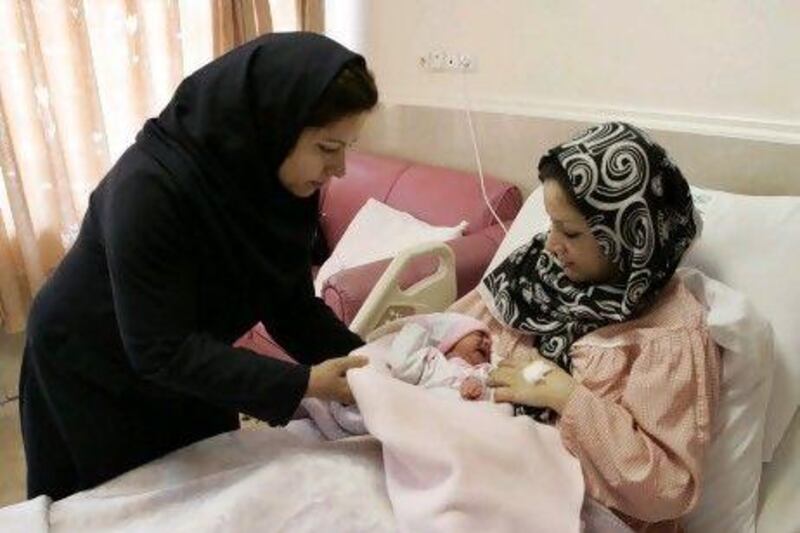Iran's new message to married couples is: go forth and have babies - the more, the better.
In a remarkable reversal of once far-reaching family-planning policies, authorities are now slashing birth-control programmes.
The aim is to avoid an ageing demographic similar to many western countries that are struggling to keep up with state medical and social security costs. But analysts see few signs that Iranian couples want more children.
"People will only have more children if they can afford to," said a female journalist in Tehran.
"It's an example of top-down decision-making," said another woman, an analyst in Tehran. "Iran has become a very different society, given the number of people living in cities and so on, so it's not at all clear whether it is possible to pursue these kinds of policies now."
With Iran's economy battered by western sanctions, high unemployment and rampant inflation, many young people in Tehran and other large cities are postponing marriage or keeping families small because of financial insecurity. For years, the official message was that smaller families would enjoy a better quality of life.
Iran's supreme leader, Ayatollah Ali Khamenei, declared last week that contraceptive policy made sense 20 years ago "but its continuation was wrong".
Speaking a day after the Statistical Centre of Iran said the country's population had reached 75.1 million, he added: "Scientific and expert studies show that we will face population ageing and reduction if the birth-control policy continues."
Family planning programmes have been cut from the budget for the current year, Mohammad Esmail Motlaq, a health ministry official, said last week.
About 55 per cent of Iranians are below the age 30. In 1986, Iran's birth rate was 3.2 per cent, one of the highest in the world, with women having an average of 5.2 children. Today the population growth rate is 1.2 per cent - one of the lowest in the region - with couples having only 1.29 children on average.
In a 2010 report, the UN's World Population Prospects said if birth rates continued their current pattern, Iran's population would start to fall in two decades and shrink to 31 million by about 2100. The UN also estimates that at present rates, more than 50 per cent of Iranians will be over 60 within 60 years.
"In our culture, having a large number of children has been the tradition," Iran's deputy health minister, Ali Reza Mesdaghinia, said on Sunday. "In the past, families had five or six children. We should go back to our genuine culture."
This major policy shift brings Iran full circle. In the early 1980s, when the country was embroiled in a devastating war with Iraq, the late Ayatollah Ruhollah Khomeini, founder of Iran's 1979 Islamic revolution, encouraged people to have more babies to build a "20 million member army".
But when the bloodshed ended in 1988 and the economy stuttered, Iran's ruling clerics realised that they would have difficulty reconciling the population explosion with the revolution's goals of social and economic development. They would have to provide jobs, housing, education and health care.
Ayatollah Khomeini gave his blessing to a progressive national family planning programme in 1989. His successor, Ayatollah Khamenei, went further, issuing fatwas permitting contraception and even sterilisation.
Teams visited remote areas offering free condoms and on-the-spot tubal ligations for women and vasectomies for men as Iran embraced family planning with public and unabashed determination.
Couples intending to marry were required to receive counselling on family planning. Having no more than two children became a patriotic act and Iran was so strikingly successful in controlling population growth that the UN once championed it as a model for other Muslim countries.
It was Iran's president, Mahmoud Ahmadinejad, who first tried to reverse his country's family planning policy. In 2010, he warned that in 30 years, Iran would be stuck with an ageing population.
He recommended a population of 150 million, which would serve as a bulwark against its ageing western adversaries. He also controversially urged girls to marry at the age of 16.
A year earlier, he had unveiled proposals for each baby to receive US$950 (Dh3,490) in a government bank account and a further $95 every year until reaching the age of 18.
He brushed aside criticism that there would not be enough food, houses or jobs for a larger population, insisting that Iranian "people want to have kids" and "God is there to nourish them".





